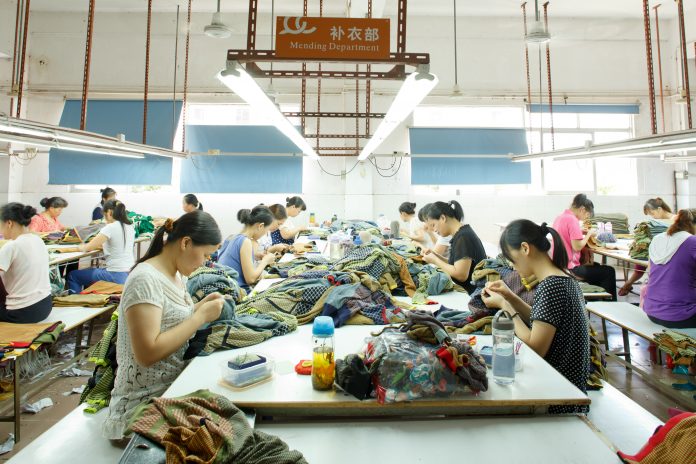Alessandro Brun, Politecnico di Milano School of Management, discusses the changing future of the ‘fast fashion’ industry
The COVID-19 pandemic has changed the face of retail like never before. Online shopping has inevitably accelerated as shops closed their doors for an extensive and uncertain amount of time. This has been extremely detrimental to the ‘fast fashion’ industry in particular, which has already been slowing down for a number of reasons prior to COVID-19.
We have all witnessed how this pandemic has sparked incredibly deep, serious and honest conversations on the future of humanity, and people have been reflecting on their behaviour, asking questions about ethics, and realising that they have a responsibility to ensure a more sustainable future for themselves and future generations.
Where did the concept of fast fashion come from?
Fast fashion was coined as a term in the early 2000s and has historically been used to describe the quick turnover of designs that move from the catwalk to current fashion trends in high-street stores at affordable prices. But people are more aware now that fashion is one of the most polluting industries, that generates a substantial environmental and social impact, and how the fast fashion industry has been growing at an unsustainable rate for many years. One such social and environmental impact is the abuse of garment workers in Bangladesh, where the Rana Plaza tragedy in 2013 highlighted the abuse faced by the people who physically create fast fashion for the West. Their legal minimum wage is $96 USD a month, which is difficult to enforce without proper unionisation.
As a result, in recent years, people have become much more aware of their unnecessary consumption, and the impact that it is having on the environment. Fast fashion has created a very unsustainable attitude of ‘buy now, throw away later’, and I believe this pandemic will accelerate people’s thoughts and actions, as they think more carefully about what they spend their money on, and indeed where the product comes from in the first place. People are making more informed decisions and becoming increasingly aware of the ethical issues surrounding fashion, including sustainability. This is especially true for ‘Generation Z’ – perhaps the most influential generation on this planet. This younger generation are much more conscious about their consumption habits, and could be a real threat to the fast fashion industry going forward as they seek fashion that is more durable, sustainable, and ethically produced.
As well as this, the fast fashion industry will also suffer from the pandemic due to various socioeconomic issues. Low to middle income families who are the main consumers will take much longer in getting back to their previous consumption levels due to loss of income and their necessity to prioritise their spending. With mass levels of unemployment and poverty infiltrating society across the globe, for many, buying clothes and accessories from fast fashion outlets will not take priority when it comes to deciding what they will spend their weekly budget on. On the contrary, higher income and wealthier households will have maintained their wealth, and their disposable income will have been essentially unaffected by the crisis.
This will mean that luxury retailers will not suffer in the same way that the fast fashion industry will as, after the lockdown, wealthier people will certainly go back to their old spending habits. As long as people have wealth, people will keep spending their money on expensive things. Indeed, on the contrary to fast fashion, luxury is the only industry that actually never faced a crisis and I believe will continue to thrive even after the pandemic. It is a very niche and unique market that has stood the test of time for centuries, and although some stores have shut down, this is minor in the grand scheme of things.
The luxury industry stays afloat
Also, luxury encompasses many products – not just apparel, footwear and accessories. While fashion items may suffer from the lack of social occasions, we need remember that luxury also includes such industries as super-cars, yachts, and of course hard luxury such as watches and jewellery. Watches and jewellery will always be seen as celebration pieces which can be passed down from generation to generation – they are timeless luxury items that people will always desire.
Luxury also includes luxury food and drink such as champagne and chocolates, home-décor and Art-de-la-Table and “home-wear”. Throughout lockdown, people have still been consuming these products, and have been wearing luxury lounge wear items. Indeed, social media has enabled people to show off their possessions despite being inside their homes, and has given luxury a new platform to be displayed. Luxury will always adapt with the times, and will always be in demand.
The fast fashion industry has been showing signs of a potentially severe slow down on multiple occasions in the past few years, and this pandemic has only accelerated a demise that – most probably – was destined to happen any time soon. The pandemic has hit the less wealthy in society the hardest, and as these people will have to prioritise their spending, it will be the cheaper, fast fashion retailers that will lose out from this demographic.
As well as this, people are now realising that fashion isn’t just about the product, it’s about the whole process, and the more educated people become regarding these issues within the sector, the more people will continue to make informed decisions. With younger generations thinking more carefully about the ethics behind fashion, the fast fashion industry will certainly face continued uncertainty.











